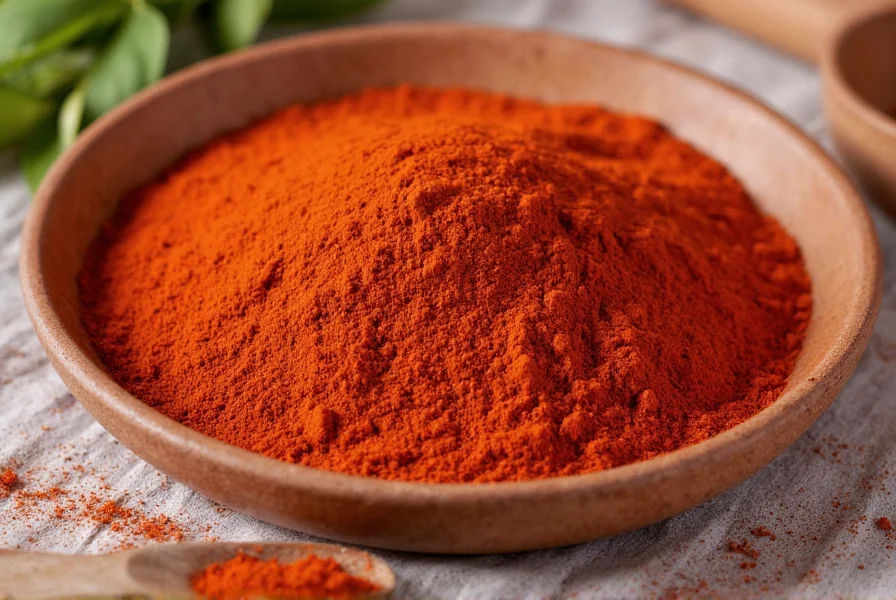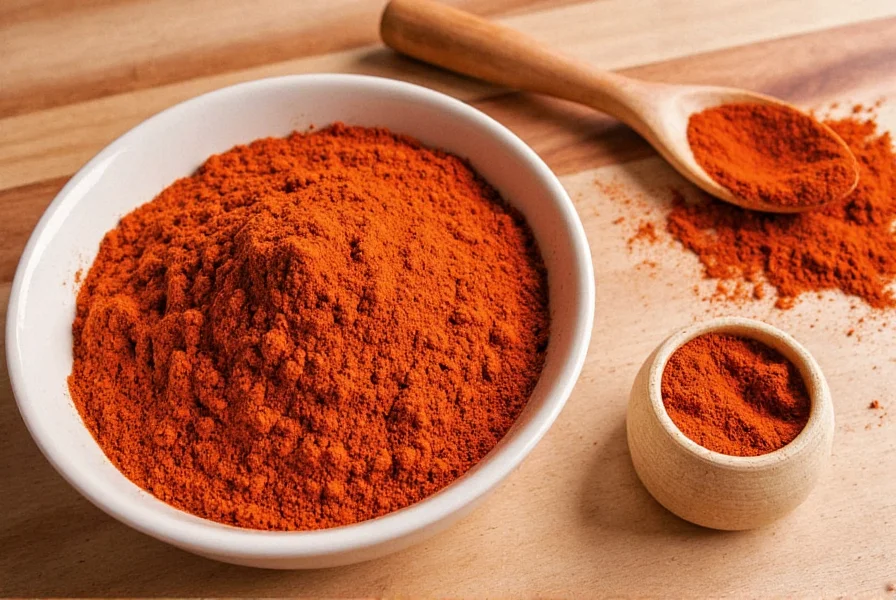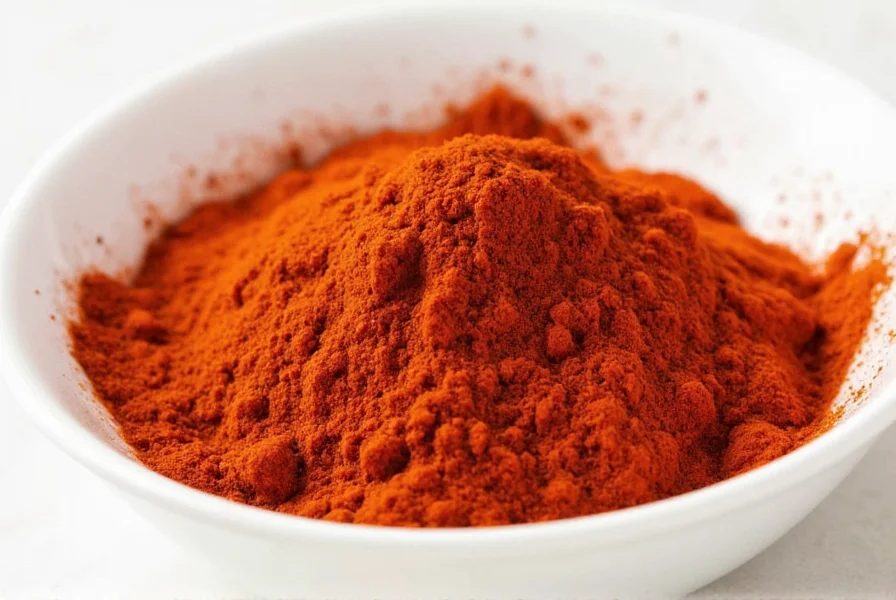When you're in the middle of cooking and realize you've run out of smoked paprika, knowing the right alternative can save your dish. This versatile spice adds a distinctive smoky depth to recipes from Spanish paella to American barbecue rubs. Understanding what makes smoked paprika unique—its delicate balance of mild heat, earthy flavor, and wood-smoked aroma—helps you select the most appropriate substitute for your specific culinary needs.
Understanding Smoked Paprika's Unique Flavor Profile
Smoked paprika, known as pimentón in Spain, is made from peppers dried over oak fires, giving it that signature smoky character. Unlike regular paprika which offers pure pepper flavor, smoked paprika delivers complex notes ranging from sweet and mild (pimentón dulce) to spicy and robust (pimentón picante). This distinction matters when selecting substitutes, as replacing it with regular paprika alone will miss the essential smoky dimension your recipe requires.
Top 5 Substitutes for Smoked Paprika
| Substitute | Ratio | Best For | Flavor Notes |
|---|---|---|---|
| Regular paprika + liquid smoke | 1 tsp paprika + 1-2 drops liquid smoke | Most recipes | Closest approximation; adjust smoke to taste |
| Chipotle powder | ½ tsp chipotle per 1 tsp smoked paprika | Southwestern dishes, chili, BBQ | Spicier with similar smokiness |
| Pimentón de la Vera | 1:1 replacement | Spanish recipes | Authentic Spanish smokiness |
| Smoked salt | ¼ tsp smoked salt per 1 tsp smoked paprika | Finishing dishes, roasted vegetables | Subtle smoke without color change |
| Cumin + sweet paprika | ½ tsp paprika + ¼ tsp cumin | Stews, bean dishes | Earthy depth without actual smoke |
Choosing the Right Substitute by Dish Type
Your recipe determines which smoked paprika alternative works best. Consider these specific recommendations when you need a smoked paprika replacement for specific dishes:
For Meat Rubs and Marinades
Chipotle powder provides excellent smokiness with added heat that complements grilled meats. Use half the amount of chipotle powder compared to smoked paprika since it's significantly spicier. For a milder option, combine regular paprika with a single drop of liquid smoke per teaspoon. This smoked paprika alternative maintains the rub's color while adding necessary smokiness without overwhelming heat.

For Stews and Soups
In liquid-based dishes like chili or goulash, regular paprika with liquid smoke integrates smoothly. Add the liquid smoke gradually, tasting as you go, since its potency varies by brand. For vegetarian stews, consider smoked paprika substitutes like a combination of sweet paprika and a pinch of cumin, which adds earthiness without actual smoke flavor. This approach works well when creating a smoked paprika replacement for recipes requiring subtle complexity.
For Deviled Eggs and Dips
Delicate dishes need careful substitution. Smoked salt offers smokiness without altering the vibrant red color that smoked paprika provides. Use sparingly—just a pinch per dozen eggs—as smoked salt's intensity can quickly dominate. This smoked paprika alternative preserves the dish's appearance while delivering that characteristic smoky note essential to classic deviled egg recipes.
For Vegetarian and Vegan Dishes
When seeking a smoked paprika replacement for plant-based cooking, consider smoked paprika substitutes that enhance umami without animal products. Liquid smoke combined with regular paprika works well, but explore smoked black tea dust or smoked sea salt for unique alternatives. These smoked paprika alternatives add depth to mushroom dishes, bean burgers, and roasted vegetable preparations without compromising dietary preferences.
What NOT to Use as Smoked Paprika Substitutes
Avoid these common substitution mistakes when you need a smoked paprika replacement:
- Plain paprika alone—misses the essential smoky dimension
- Excessive liquid smoke—can make dishes taste artificial or bitter
- Hot sauce—adds unwanted vinegar and liquid to your recipe
- Smoked meats—doesn't translate the flavor appropriately to spice form
Creating Your Own Smoked Paprika Substitute
If you have time to prepare a custom blend, combine 1 tablespoon sweet paprika with ¼ teaspoon garlic powder, ⅛ teaspoon cayenne pepper, and 2-3 drops of liquid smoke. Store in an airtight container for up to two weeks. This homemade smoked paprika substitute works particularly well for recipes where you need a consistent supply throughout cooking. For those seeking authentic Spanish flavor, research traditional pimentón de la Vera as the closest commercial alternative to standard smoked paprika.

Adjusting Recipes When Using Substitutes
When implementing smoked paprika substitutes, remember these adjustment tips:
- Add substitutes gradually—you can always add more but can't remove excess
- Consider the dish's cooking time—longer cooking mutes smoky flavors
- Balance with complementary flavors like garlic, onion, or tomato
- For color retention, always include some regular paprika in your substitute blend
Understanding these nuances transforms your approach to finding the best smoked paprika replacement for any culinary situation. Whether you're looking for smoked paprika substitutes for Spanish recipes or need alternatives for American barbecue dishes, these guidelines ensure your dishes maintain the essential smoky character that defines so many beloved recipes worldwide.











 浙公网安备
33010002000092号
浙公网安备
33010002000092号 浙B2-20120091-4
浙B2-20120091-4